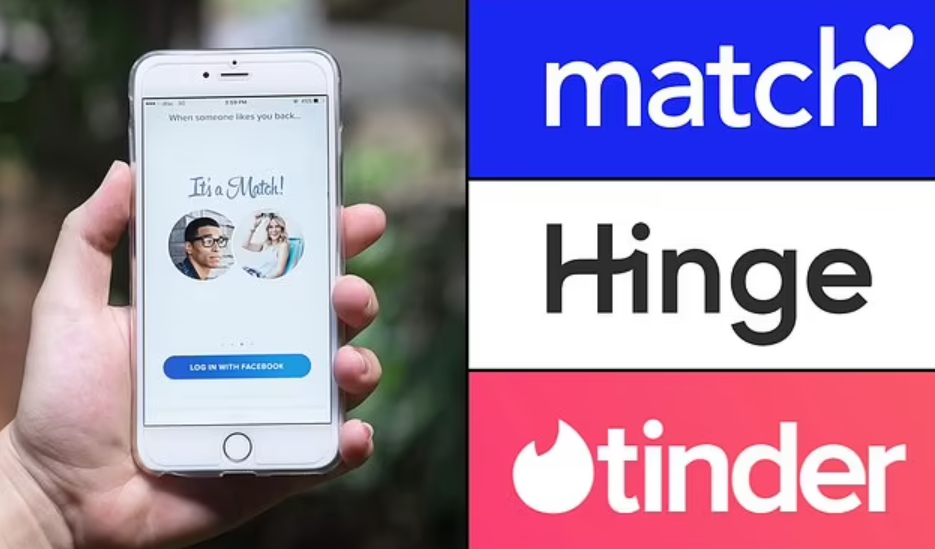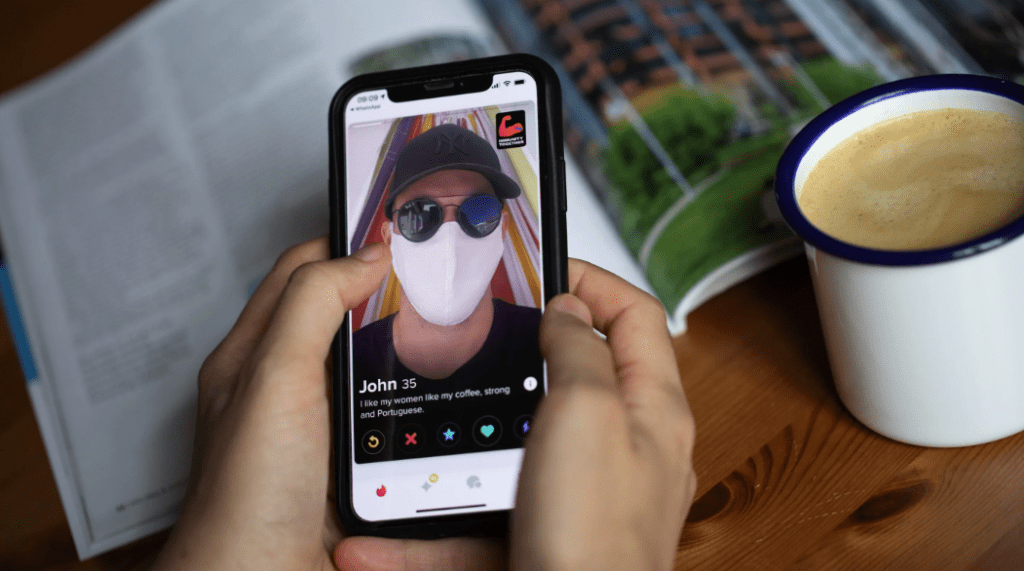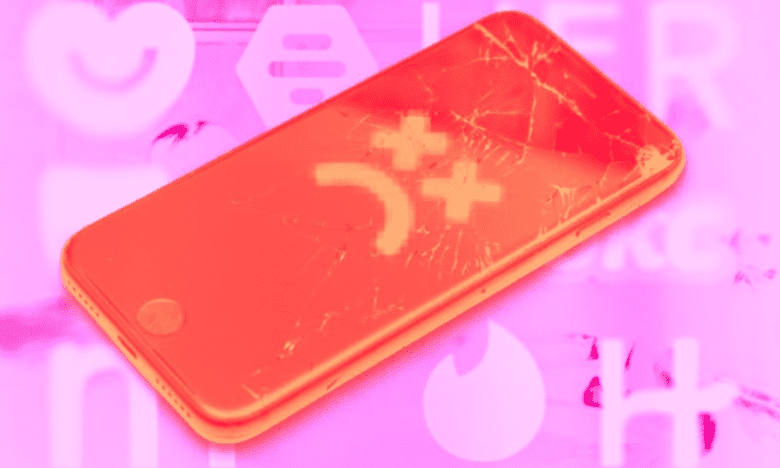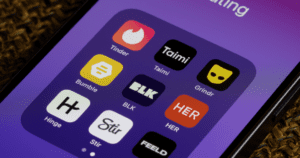Hinge and Tinder: The Lawsuit Accusing Dating Apps of Fueling Addiction Through Compulsive Use
Introduction: The Digital Love Quandary
In the realm of dating apps like Tinder and Hinge, managed by the Match Group, a class-action lawsuit has sparked a significant debate: Are these dating apps facilitators of romance or fuel for dating app addiction? This case suggests these apps intentionally design features that encourage obsessive swiping, leading to addictive behaviors and expensive subscriptions. This compulsive use, critics argue, transforms users into gamblers locked in a search for love, questioning whether the business model prioritizes corporate profits over genuine connections. As we navigate this digital love quandary, the quest for love has become intertwined with ethical and psychological considerations.

The Lawsuit Against Tinder and Hinge: Unveiling the Claims
Lawsuit Filed in Federal Court Against Dating Platforms: Are They Fueling Compulsive Use?
Recent class action case allegations against these dating platforms have sparked a heated debate over whether these apps encourage obsessive use. This case suggests that these apps intentionally design features that lock users into a game like cycle of endless swiping, aimed at fomenting app addiction. This strategy not only drives expensive subscriptions but also exploits users into a perpetual pay to play loop, prioritizing Match Group’s corporate profits. As this legal battle unfolds, it forces us to question the ethical implications of dating platforms’ business model and the real impact on dating app users.
How Match Group’s Intentionally Designed Features Encourage Compulsive Use
Match, the conglomerate behind popular Match’s apps, including Tinder and Hinge, has come under scrutiny for its intentionally designed features that critics argue encourage irresistible use. By deploying game like elements and psychological rewards, these platforms keep users engaged in a perpetual loop of swiping, seeking the dopamine rush of a new match or message. Such designs not only lock users into continuous use but also drive expensive subscriptions, benefiting Match’s bottom line.
Key features that contribute to this cycle include:
- Infinite Swipe: An endless stream of profiles encourages users to keep swiping in the hope of finding the perfect match.
- Instant Rewards: Matches and messages provide immediate, unpredictable rewards, similar to a slot machine’s allure.
- Push Notifications: Frequent alerts pull users back into the app, reinforcing compulsive checking behavior.
- Visibility Boosts: Paid features promise increased visibility, tempting users with the potential for more matches and thereby further encouraging obsessive use.

Understanding the Psychology Behind Compulsive Swiping on Dating Sites
The Compulsive Nature of Swiping: Dating Platforms’ Psychological Trap
The act of swiping on dating platforms has transformed into more than just a search for love; it’s become a psychological trap. This compulsive nature of swiping is no accident but a result of dating apps intentionally designing their interfaces to tap into our brain’s addictive tendencies. These platforms encourage obsessive use by creating a game like environment where users are constantly baited with the search for psychological rewards.
This uncontrollable use is not just about the hope of finding a match. Still, it is fueled by the dopamine manipulating product features that make each swipe an anticipation of psychological rewards that Match makes elusive. The result is users locked in a perpetual loop of engagement, often at the expense of their emotional and sometimes financial well-being. As dating apps continue to fuel this cycle, it begs the question of where the line between helpful and harmful truly lies in the digital quest for connection.
Encouraging Compulsive Use: The Game-Like Design
The game like design cleverly encourages obsessive use among its users. These dating platforms have mastered the art of engagement through features that make the pursuit of matches entertaining and addictive. This compulsive behavior is spurred on by the swipe mechanic—a simple gesture that yields immediate psychological rewards, akin to a gambler pulling the lever on a slot machine.
This encouragement of compulsive use is further amplified by:
- Match Explosions: Sudden flurries of matches fuel the desire to keep swiping, hoping for more bursts of validation.
- Read Receipts and Last Seen: Knowing when someone reads your message or when they were last online keeps users hooked, waiting for responses or signs of interest.
These elements exploit natural human tendencies for curiosity and validation, transforming these sites into platforms that users find difficult to put down. As a result, what was meant to facilitate connection often ends up fostering a cycle of compulsive use that blurs the line between social interaction and game like engagement.

The Ethical Dilemma: Should Dating Apps Be Held Accountable?
New Lawsuit Claims Match Dating Apps Prioritize Profit Over People
According to the lawsuit, through the game like features that Match intentionally designs, it encourages obsessive use, and grabs users’ attention, leading users into a perpetual pay to play loop. These strategies, critics argue, are not just about fostering connections but are engineered to maximize subscription revenue and keep users locked in a search for elusive psychological rewards.
By fomenting this addiction that drives expensive subscriptions and perpetual use, Match allegedly capitalizes on users’ desire for companionship, turning their compulsive swiping into a profit making engine. This approach has led to accusations that the company’s business model is based on advertising or engagement metrics that encourage compulsive use rather than genuine human connection, challenging the group’s public stance on understanding the purpose and mission of their dating platforms.
New Class Action Lawsuit Challenges: Are Dating Apps Ethically Locking Users?
The core of the challenge lies in whether these sites, by fomenting online dating addiction, are compromising the well-being of their users for corporate profits. Critics argue that the uncontrollable use driven by these platforms raises significant ethical questions about Match’s business model and its impact on society’s dating app users. As the case unfolds in the federal court in the northern district of California, it invites a broader discussion on the responsibilities of dating apps in moderating addictive behaviors and the fine line between user engagement and exploitation.

Toward a Healthier Digital Dating Environment: What’s Next for Tinder, Hinge, and Match Group?
Redesigning Dating Platforms: How Match Could Intentionally Design for Healthier Use
Shifting the focus from game like design features that lock users into a perpetual swipe loop to more ethically conscious functionalities could mark a pivotal change in how dating apps operate.
Proposed redesigns could include:
- Usage Timers: Implementing tools to track and limit daily app use, encouraging breaks from swiping.
- Meaningful Connection Prompts: Moving away from superficial swipe mechanics to features that foster deeper conversations and connections.
- Well-being Resources: Offering in-app resources on managing dating app addiction and promoting mental health awareness.
By intentionally designing the platforms with these healthier practices, Match could demonstrate a commitment to prioritizing user well-being over profits, potentially setting a new standard for dating apps and their impact on online dating culture. This approach could help Match redefine success by fomenting dating app use that supports balanced, meaningful interactions, aligning with the mission of our entire industry to connect people in positive, sustainable ways.
In the digital landscape, dating apps present both opportunities and challenges for modern romance. Recent lawsuit claims spotlight the delicate line between facilitating connections and promoting compulsive use. As we navigate love in this era, it’s crucial for both dating platforms and users to strive for a healthier balance, ensuring the quest for companionship enriches rather than detracts from our well-being.
Frequently Asked Questions (FAQ)
Can using dating apps like Tinder and Hinge lead to addiction?
Yes, these dating apps have been criticized for intentionally designing features that can encourage compulsive use, leading to behaviors associated with addiction. Match, which owns these platforms, faces lawsuit claims suggesting their game-like mechanics exploit psychological rewards, fostering compulsive behaviors in users.
What are the main concerns raised by the lawsuit?
The lawsuit focuses on how these dating platforms are designed to hook users, encouraging compulsive use through game-like design features and psychological rewards that drive expensive subscriptions. Critics argue this prioritizes Match Group’s profits over genuine human connections.
How might these apps be redesigned for healthier use according to critics?
Critics suggest that these dating apps could be redesigned to discourage compulsive use by limiting daily usage, encouraging breaks, promoting deeper conversations over superficial swipes, and providing resources for managing dating app addiction.
Are there ways to use dating apps without becoming addicted?
Yes, users can implement self-imposed limits on their dating app usage, focus on quality over quantity of interactions, take regular breaks from the apps, and seek connections outside of the digital sphere to mitigate the risk of compulsive behaviors associated with dating app addiction.
Has Match Group responded to the lawsuit claims regarding dating app addiction?
Match Group has defended its business model, stating that its platforms are designed to help people find meaningful relationships, not to encourage addiction. They argue that their success is not based on compulsive use but on the ability to facilitate genuine connections between dating app users
How does dating app addiction drive users to spend more?
Dating app addiction can lead to behaviors where users are compelled to spend more money on dating apps like Tinder. This app addiction often drives expensive in-app purchases or subscriptions as users seek to increase their chances of matches and connections. Apps are designed with features that create a sense of scarcity and urgency, nudging users towards paid options for a better experience.
Are all dating sites designed to be addictive?
Many critics argue that such apps are designed with addictive mechanics to keep users engaged. Features such as endless swiping and intermittent rewards encourage continuous use, fueling online dating addiction. However, it’s important to note that not all apps intentionally adopt these practices, and some are actively working to promote healthier usage patterns.
References:
Chris Grace (2016) Is Compatibility Really That Important? Pt. 2. Biola University
eHarmony (2021) The history of online dating. Eharmony.
Edwin L. Aguirre (2016) Researchers Develop a Matchmaking Program. Edwin L. Aguirre
Deli, E., Depotter, C., Lewis, N., Nam, K. M., Silfanus, N., Voirin, N., & Ng, W. W. (2015) The future of dating: 2040. eHarmony UK and Imperial College Business School.
Harmeet Kaur (2020) A landmark study shows what makes a successful relationship. CNN
Jill Sutie (2015) How is Technology Shaping Romance? Greater Good Magazine
Frost, J. H., Chance, Z., Norton, M. I., & Ariely, D. (2008) People are experience goods: Improving online dating with virtual dates. Journal of Interactive Marketing.
Jung, J., Lim, H., Lee, D., & Kim, C. (2021) The secret to finding a match: A field experiment on choice capacity design in an online dating platform. Information Systems Research, Ahead of Print.
Alex Shashkevich (2019) Meeting online has become the most popular way U.S. couples connect, Stanford sociologist finds. News Stanford
Jessica M. Sautter, Rebecca M. Tippett, and S. Philip Morgan. (2010) The Social Demography of Internet Dating in the United States. Social Science Quarterly
Günter J. Hitsch, Ali Hortaçsu, & Dan Ariely (2010) Matching and Sorting in Online Dating. American Economic Review
Dolores Tropiano (2023) More internet matches are leading to happy marriages. Arizona State University.



